You can make tap water safe for plants using the simple process of purification. In this article, we discuss this procedure in detail.
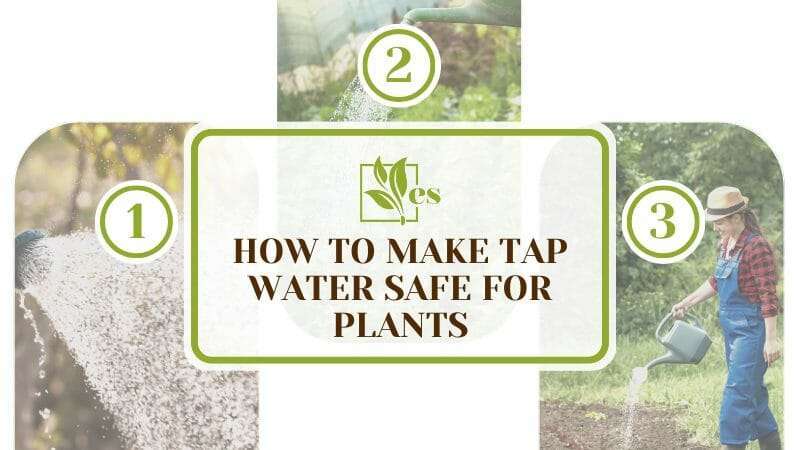
Our experts give you insights into how tap water can be used for houseplants without hampering their growth. Continue reading to understand the process.
JUMP TO TOPIC
- How To Make Tap Water Safe for Plants
- Can Tap Water Be Used for House Plants?
- How Long To Let Tap Water Sit Before Watering
- What Temperature Tap Water Is Best for Houseplants?
- Can I Use Tap Water for Plants if I Have a Water Softener?
- What Kind of Water Is Best for Plants?
- Plants That Are Sensitive To Tap Water
- Tips
How To Make Tap Water Safe for Plants
Letting the water sit for some time, boiling it and filtering it are some effective ways to easily make tap water safe for plants. Here are the details on how you can achieve this.
– Get Rid of Chlorine
The easiest way to dechlorinate tap water is by boiling the water or letting it stay under the sun for at least 24 hours. This will make the chlorine in it evaporate. You can safely use the water for houseplants after doing this.
By letting the water sit for some time, the salt in the water will settle down at the bottom of the container as well.
– Keep the PH Right
Tap water contains the risk of being potentially high in pH. Calcium dissolved in water increases the pH and prevents the plant from absorbing nutrients. If tap water is continuously used to water the plant, over time it can even increase the pH of the soil.
Most plants thrive well at a pH between 5.5 to 7.0. To lower the pH in tap water, add phosphoric acid or a pH-lowering solution. Do check the needs of your plants as some plants such as azaleas prefer an acidic environment. You can lower the soil pH with other ways as well.
– Tackle Hard Water
Hard water means that the water contains high traces of limestone deposits. You can filter tap water for plants by boiling it. Boiling will help to separate the dissolved limestone of the water.
– Boil Tap Water
Boiling tap water not only tackles hard water as discussed above, but it is also a good way to remove unwanted contaminants from the water.
If you only have a handful of plants, boiling water in a large kettle for a few minutes will do the job. Boil until you notice the limestone clinging to the bottom and sides of the kettle.
– Cool Tap Water Before Use
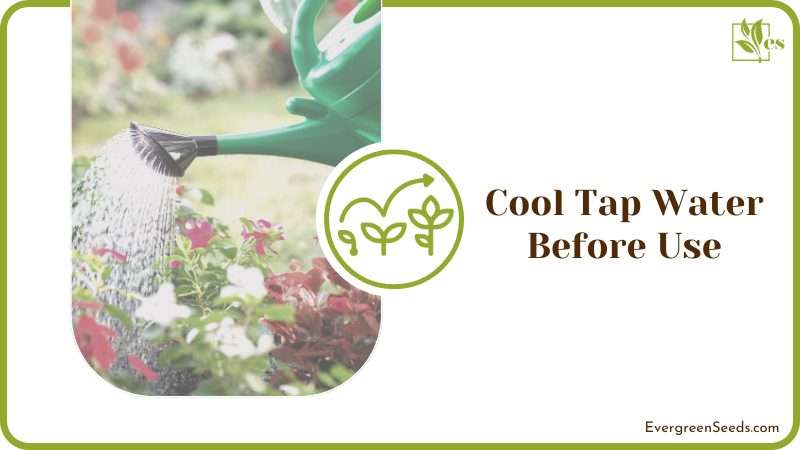
Always cool the water completely before watering plants with tap water. Hot or warm water can kill some plants. Thus, set it aside for an hour after boiling before you begin the process of watering.
– Use a Filter
Water filters available in the market purify tap water for plants by keeping it chlorine-free. Filters can also remove other contaminants from the water.
However, purchasing a filter is an additional expense, so if you have the time, this purchase can be ignored. Boiling and setting the water aside should work fine too.
– Reverse Osmosis
Reverse osmosis is a more complex filtration process and can remove chemicals from tap water, making it safe for plants. It is an effective process of filtration, clearing out chlorine, sodium, and chloramines, along with other toxic materials.
– Activated Carbon Filters
Another way to purify tap water is to use Activated Carbon Filters (ACF). This is a cylinder that is filled with charcoal. Water is run through the activated charcoal, which will then absorb all the chlorine present in the water.
This process is faster, requiring only a few seconds. You will, however, need to replace the charcoal filters every six months.
Can Tap Water Be Used for House Plants?
Yes, tap water can be used to water house plants, but make sure that the water is clean first. There are a few aspects you need to bear in mind before you proceed. Check the below-mentioned levels in your tap water, privately or with a water report from the city or town administration, before you proceed.
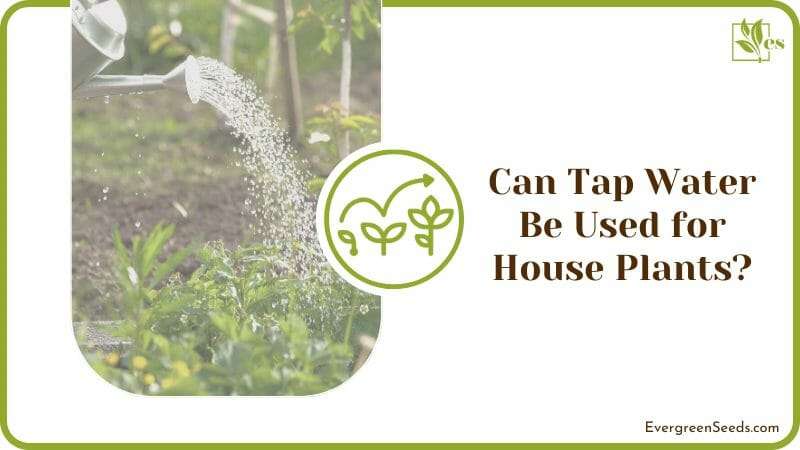
– Problems in Tap Water
- Salt build-up: Tap water can have salts that build up a layer in the soil if used over time. This salt build-up hampers the growth of the plant.
- Water pH: Tap water can be alkaline with a high pH. In such a situation, your plant will not thrive as it will lack the ability to absorb nutrients.
- Limestone content: Tap water can be hardened because of high dissolved volumes of calcium and magnesium. Too much of these products can be harmful to plants.
- Calcium and fluoride content: Fluoride and chlorine are often added to tap water to kill bacteria and contaminants. This can cause problems with the growth of a plant.
How Long To Let Tap Water Sit Before Watering
Let your tap water sit for a minimum period of 24 hours before using it to water your plants. This will ensure maximum evaporation of chemicals such as chlorine, and the salt will settle at the base of the container as well.
What Temperature Tap Water Is Best for Houseplants?
The best temperature of tap water for watering your house plants is between 62 degrees Fahrenheit and 72 degrees Fahrenheit. This temperature prevents cold stress as well as keeps the plant hydrated, so cool down the water, without being in a hurry, and then water your houseplants.
Can I Use Tap Water for Plants if I Have a Water Softener?
No, using water softeners on hard tap water is not recommended when you are watering houseplants. Water softeners have sodium carbonate in them. This will increase the levels of sodium ions in the water, so avoid softened water for houseplants.
What Kind of Water Is Best for Plants?
Distilled water is usually the best kind of water to use for plants, but it will still depend on the nature and sensitivity of a plant. Different types of water have various aspects which affect plants in many ways. While some plants are hardy and tolerate all types of water, others are more sensitive to specific types.
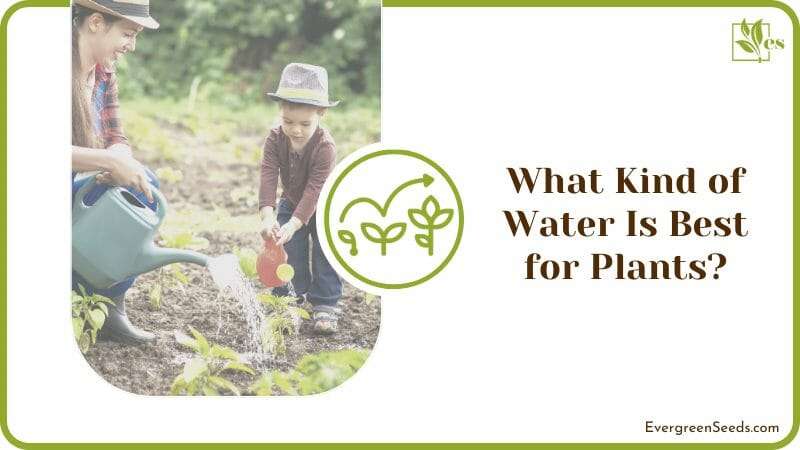
Commonly available water that is used to water plants include:
- Rainwater, which is nature’s gift to mankind
- Tap water is almost always easily available
- Distilled water that needs to be purchased
– Rainwater for Watering Plants
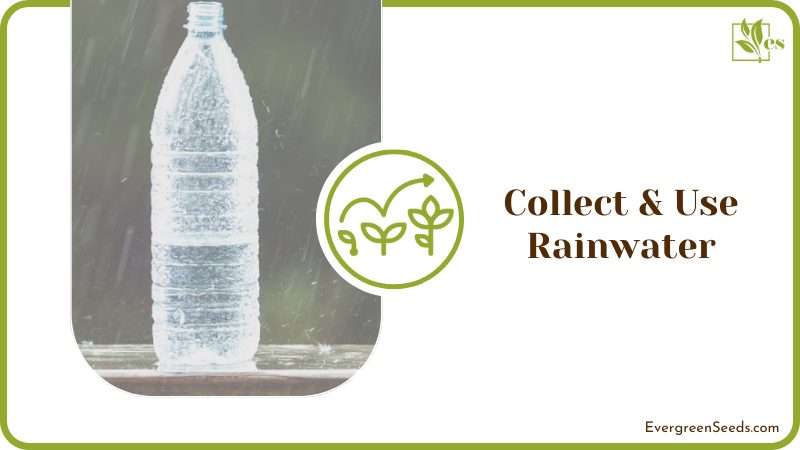
Plants love rainwater and here are the reasons why:
- Rainwater contains naturally dissolved nitrogen.
- It is free of additives such as chlorine or fluoride in comparison to tap water.
- Its natural nitrates aid plant growth.
- Rainwater is naturally soft and won’t hamper the plant in any way.
- It involves a simple process that includes collecting rainwater directly in containers from your gutter or downspout.
- It has an easy filtration process to remove dust and debris.
– Distilled Water vs Tap Water
The main difference between using distilled or tap water for plants is that distilled water is free of bacteria and viruses whereas tap water has to be set aside for a period of time for it to be safe for plants.
Aside from this, plants can grow in both tap water as well as in distilled water as both types of water have their pros and cons. Read on to understand more about this.
– Pros of Tap Water
- It is easily available to water your plants with.
- It has natural minerals that can aid plant growth.
- It doesn’t cost much.
– Cons of Tap Water
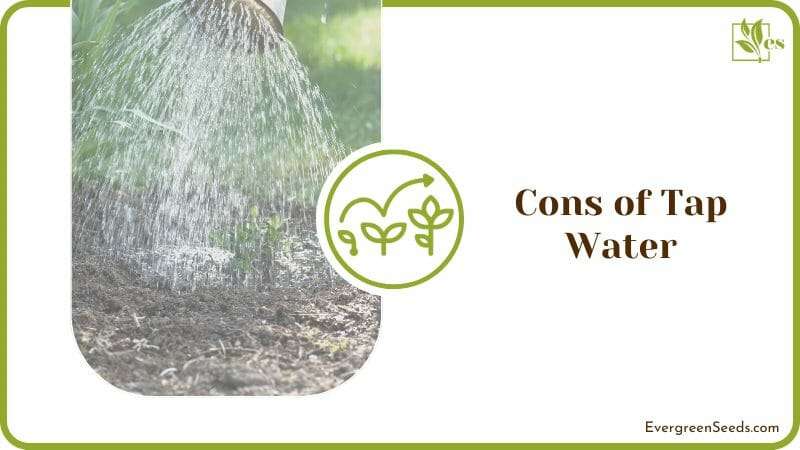
- The additive chlorine and fluoride and the possibility of hard water can be very harmful to your plants.
- The additional task of boiling or filtering water for plants before use can be tedious.
– Pros of Distilled Water
- It is pure and free of bacteria and viruses.
- It does not contain limestone or chlorine deposits.
– Cons of Distilled Water
- It will not have essential vitamins required by the plant and therefore could cause an imbalance in the soil.
- Using distilled water for plants is a more expensive option, especially if you have many house plants.
- Plants won’t grow quickly due to the lack of natural minerals that are otherwise present in tap water.
- Requires more fertilizers as distilled water does not add any nourishment to the plant. You can use the 46-0-0 fertilizer or the 0-0-60 fertilizer which can be used to houseplants, trees, shrubs, and vegetables.
Plants That Are Sensitive To Tap Water
Most houseplants that are sturdy and robust will do fine with filtered water for plants. However, there are a few that do not do well with tap water. Here are a few of them:
- Orchids need lots of oxygen around their roots. The minerals present in tap water can clog the roots. Thus, they do not fare well with this water.
- Cacti and air plants do not like tap water as well. These plants require light, sandy soils and tap water with its high mineral content just does not suit them.
- Spider plants are sensitive to the minerals present in tap water too.
- Citrus plants prefer rainwater more than tap water due to the mineral build-up.
Tips
Water for houseplants can be from many sources such as filtered water, rainfall or tap water. Remember, not all of them are equal in their content. Here are a few tips to water your houseplants efficiently:
- Avoid the use of vinegar to neutralize the alkalinity of tap water as most plants cannot tolerate it in their soil.
- Boiling water can be a very intensive procedure. If you have a lot of plants, this method can be inefficient. Use distilled water or a reverse osmosis filter.
- Collect and use rainwater. It is eco-friendly and less expensive.
- For a more energy-efficient way, try using leftover water from cooking vegetables. This will add nutrients to the soil. However, avoid doing this if you cook vegetables with salt.
- If you notice any build-up of white minerals around the base of your plant, flush it out with distilled water or rainwater. Some plants are sensitive to the mineral content in tap water.












